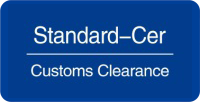GCC certification
GCC is the English abbreviation of Gulf Cooperation Council. The Gulf Cooperation Council was established in Abu Dhabi, UAE on May 25, 1981. Its member states are Saudi Arabia, Kuwait, United Arab Emirates, Qatar, Sultanate of Oman, Kingdom of Bahrain, and Yemen. The General Secretariat is located in Riyadh, the capital of Saudi Arabia. The highest authority is the Supreme Council, which is composed of the heads of member states, and the chairman is assumed by the heads of states in rotation for a one-year term. The political and economic systems of the six countries are similar, the royal family is closely connected, and they have common interests in politics, economy, diplomacy, and national defense. They are an important political and economic organization in the Middle East.
In May 2009, the GSO Board of Directors held its tenth meeting and reached a consensus resolution on GCC Conformity Marking. It is required that all regulated products must be affixed with the GCC Conformity Marking logo. These products with the GCC Conformity Marking logo can be circulated and traded in GCC member states more quickly and conveniently. In addition to meeting the basic health, safety and environmental protection requirements, all products with this logo must also meet the requirements of the relevant GSO standards and regulations applicable to the product.
Details














 scan
scan scan
scan
